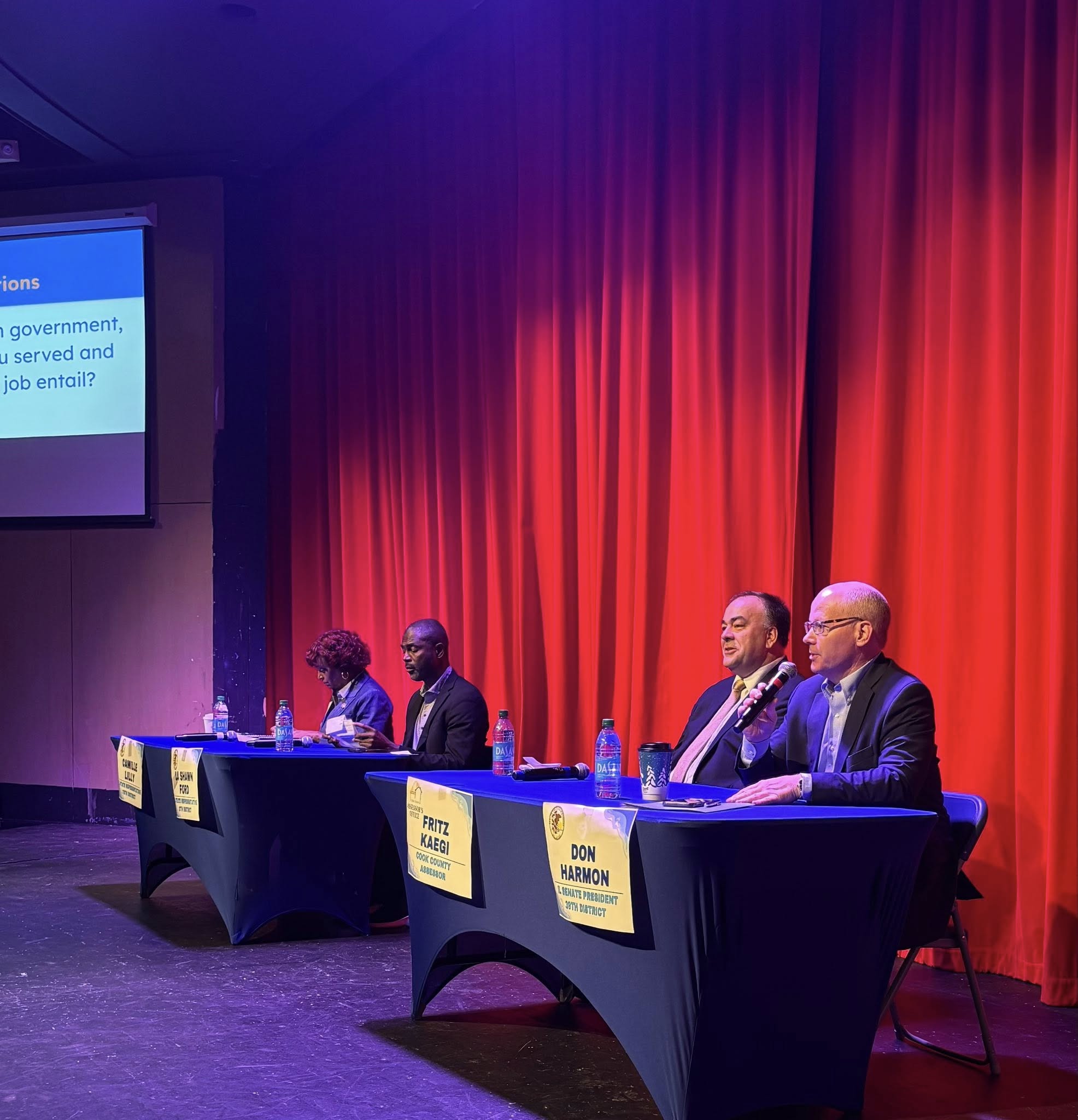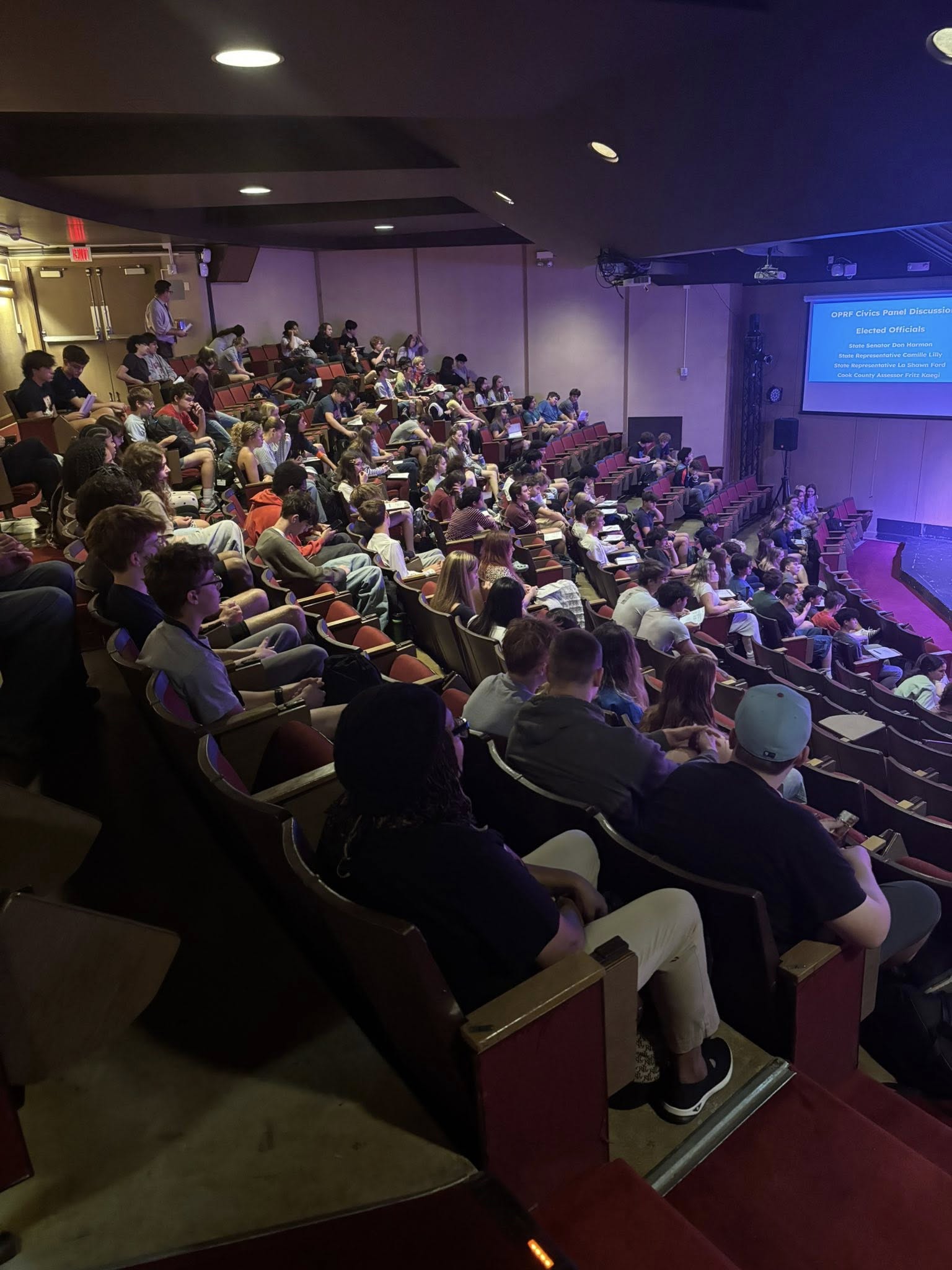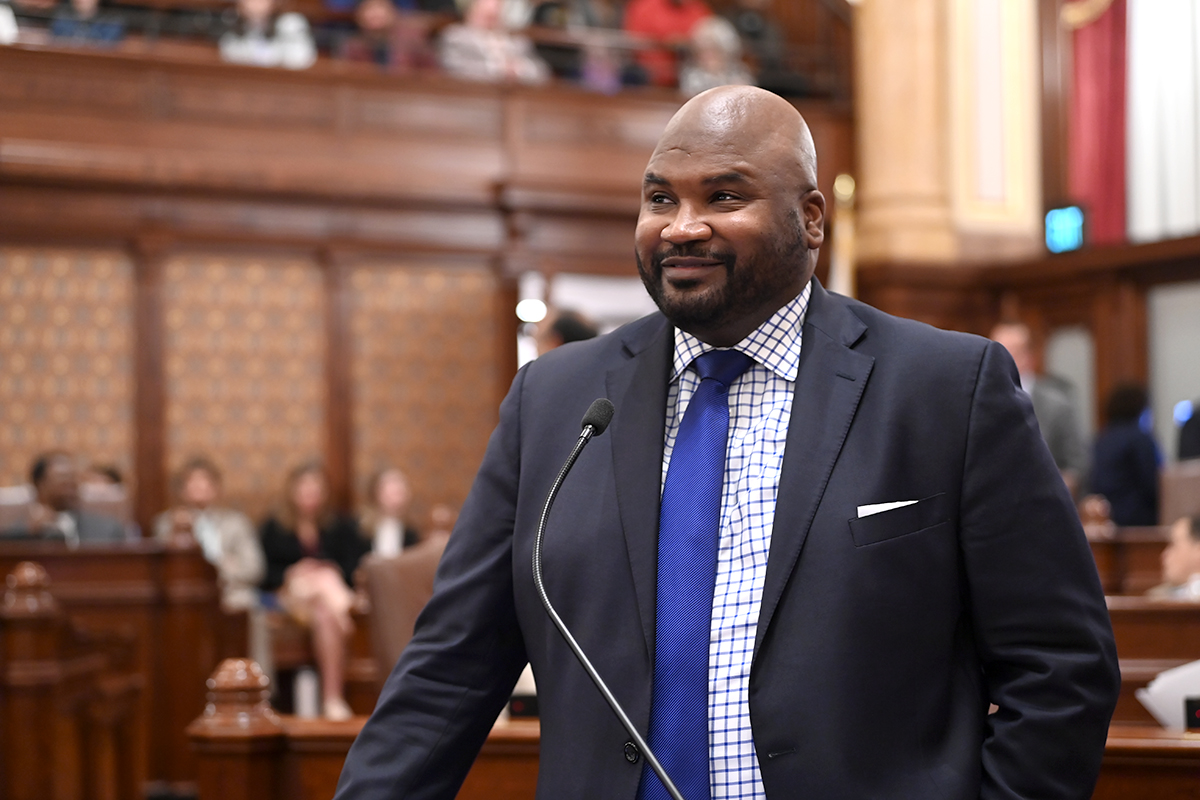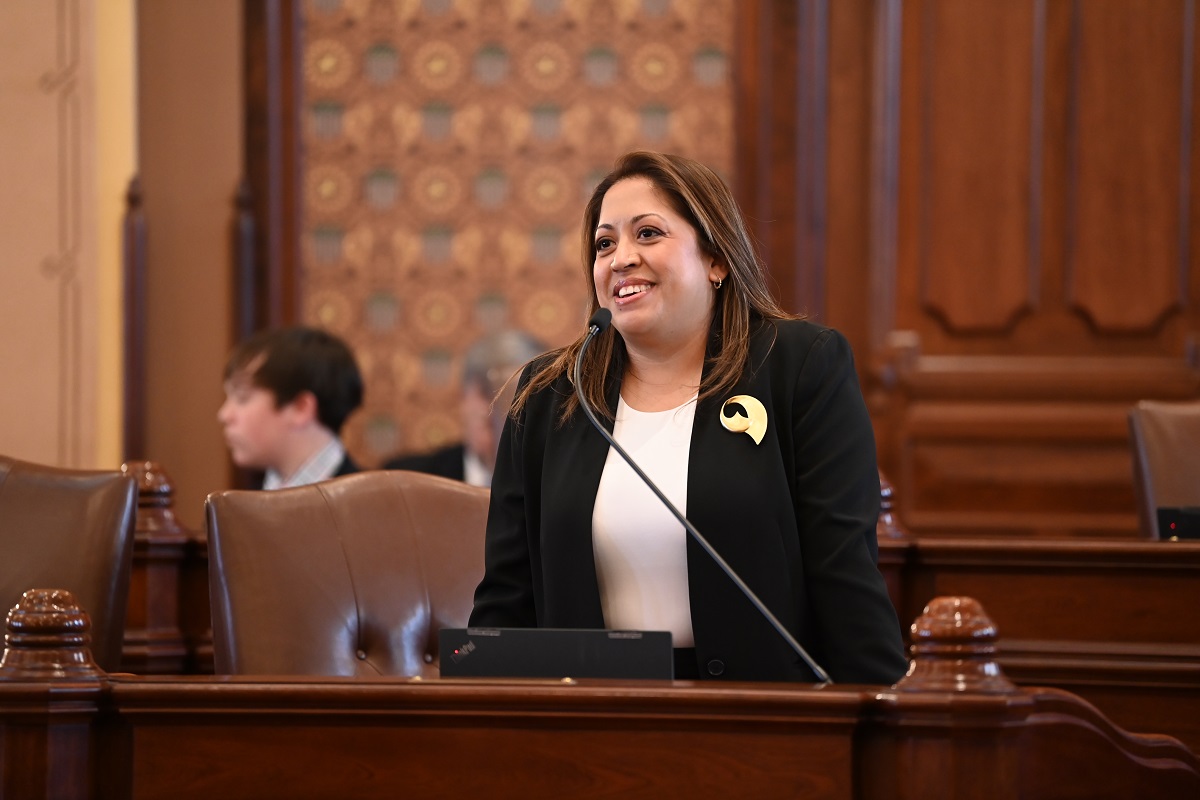- Details
- Category: News
Senator Don Harmon (D-Oak Park) spoke about the importance of civic engagement to a packed auditorium at Oak Park-River Forest High School as part of their Civics Service Learning Fair.
Harmon was part of a panel discussion including State Rep. Camille Lilly, State Rep. LaShawn Ford and Cook County Assessor Fritz Kaegi.
Hundreds of juniors and seniors participated, learning about nonprofit and volunteering opportunities in our community.
Students also browsed 29 tables representing local nonprofits at the event.
The Civics Service Learning Fair is held twice a year at OPRF High School for students enrolled in the Civics class.



- Details
- Category: Majority Report
Statement from the Latino Caucus on ICE activity
CHICAGO — The Illinois Legislative Latino Caucus released the following statement regarding ICE activity in Chicagoland:
“The federal administration’s decision to ramp up ICE activity in the Chicago area is divisive and appears to be a pretext for potentially deploying the National Guard. Our message remains clear: neither is welcome here."
Sims highlights historic education investments
CHICAGO — State Senator Elgie R. Sims, Jr. celebrated the start of the school year by highlighting prioritized investments into education – from securing greater teacher opportunities to enhancing infrastructure.
"Today is a culmination of our commitment to investing in both our students' education and their health,” said Sims (D-Chicago) “Illinois' record investments in our schools are paying dividends across our communities.”
Ready? September is National Preparedness Month
As we observe National Preparedness Month, it’s important for residents to prioritize their safety and readiness for emergencies. This month serves as a reminder to prepare for potential disasters and emergencies, ensuring individuals and families can effectively respond when unforeseen events occur.

In case you missed it
MEMBERS IN THE NEWS
Senator Bill Cunningham, Chicago: Illinois lawmakers explore options to ease rising energy bills | FOX Illinois
Senator Adriane Johnson, Buffalo Grove: New Illinois law allows student teachers to be paid | WAND
Senator Doris Turner, Springfield: Illinois will require suicide prevention contact info on school employee IDs next year | WAND
Copyright 2025 - Illinois Senate Democratic Caucus - All Rights Reserved
- Details
- Category: News
Senate President Don Harmon issued the following statement after a man visited Gov. JB Pritzker's house to post threatening images and language on social media:
"Even as people across the nation call for an end to hateful rhetoric and for a calmer, more reasonable version of political discourse, yesterday a man went to the governor’s home to threaten him and make online posts inciting violence. That is never OK.
- Details
- Category: Majority Report
Villanueva law expands reproductive health care access on college campuses
SPRINGFIELD – To ensure young adults can access reproductive health care without unnecessary barriers, a new law led by State Senator Celina Villanueva expands access to contraception and medication abortion directly on college campuses across Illinois.
“Young people shouldn’t have to jump through hoops to access basic health care,” said Villanueva (D-Chicago). “This law meets students where they are—on campus—and affirms their right to make decisions about their own bodies with dignity and convenience.”
Feigenholtz celebrates record-breaking tourism surge in Illinois
CHICAGO – State Senator Sara Feigenholtz is celebrating news that Illinois welcomed a record 113 million visitors in 2024, exceeding the previous record and bringing an increase in visitor spending, tax revenue and hospitality jobs.
“Visitors and locals alike know that Illinois is the best place to be, and the ‘Middle of Everything’ campaign has tremendously helped us get the word out far and wide,” said Feigenholtz (D-Chicago). “Illinois’ record-breaking tourism numbers are evidence of our commitment to promoting our great state to visitors while supporting our tourism industry.”
Collins, Lightford bring safe, affordable housing to Maywood
MAYWOOD – Standing alongside Governor JB Pritzker and leaders from Black Men United, Senate Majority Leader Kimberly A. Lightford and State Senator Lakesia Collins proudly cut the ribbon on a new affordable housing unit for low-income families in Maywood.
“The new Maywood facility is a building of hope and opportunities for families who will now have a safe, affordable place to call home,” said Lightford (D-Maywood). “The building symbolizes the power of what happens when we invest in our communities and believe in our capacity to create change.”
Sound of the State: Labor Day and Worker Protections
As chair of the Senate Labor Committee, Senator Robert Peters knows how vital workers are to our state’s success. From the Haymarket Riots to today’s workforce development, Illinois has always been at the heart of America’s labor movement. In this Labor Day episode of Sound of the State, he shares why Illinois is leading the way in labor rights and equity.

In case you missed it
MEMBERS IN THE NEWS
Senator Meg Loughran Cappel, Shorewood: Loughran Cappel-led bill removes statute of limitations on child trafficking | Shaw Local
Senator Napoleon Harris III, Harvey: Illinois law provides free veterinary care for retired police dogs | WICS
Senator Michael Hastings, Frankfort: New Illinois laws could improve response for school shootings, hazmat emergencies | WAND
Copyright 2025 - Illinois Senate Democratic Caucus - All Rights Reserved
- Details
- Category: Majority Report

Wishing you a safe Labor Day
This Labor Day, let’s take time to thank all the hardworking men and women here in Illinois who work every day to make our state a great place to live.
Let us recognize the many contributions workers have made for decades to the country’s strength, prosperity and well-being.
We thank all the frontline workers who risk their safety daily to take care of the rest of us. Have an enjoyable and safe Labor Day!
Copyright 2025 - Illinois Senate Democratic Caucus - All Rights Reserved











